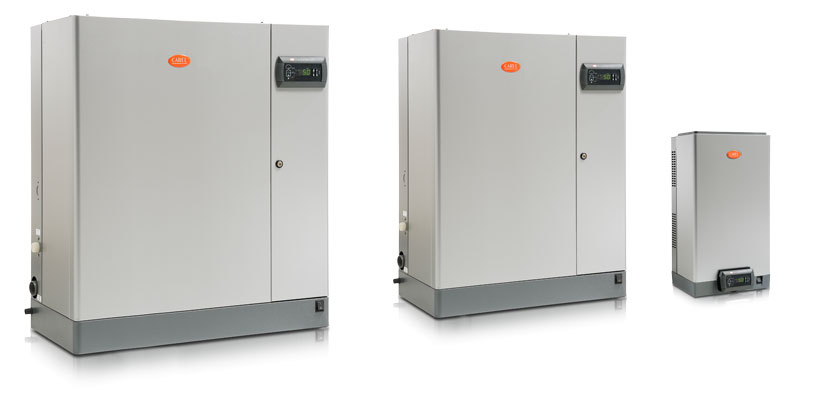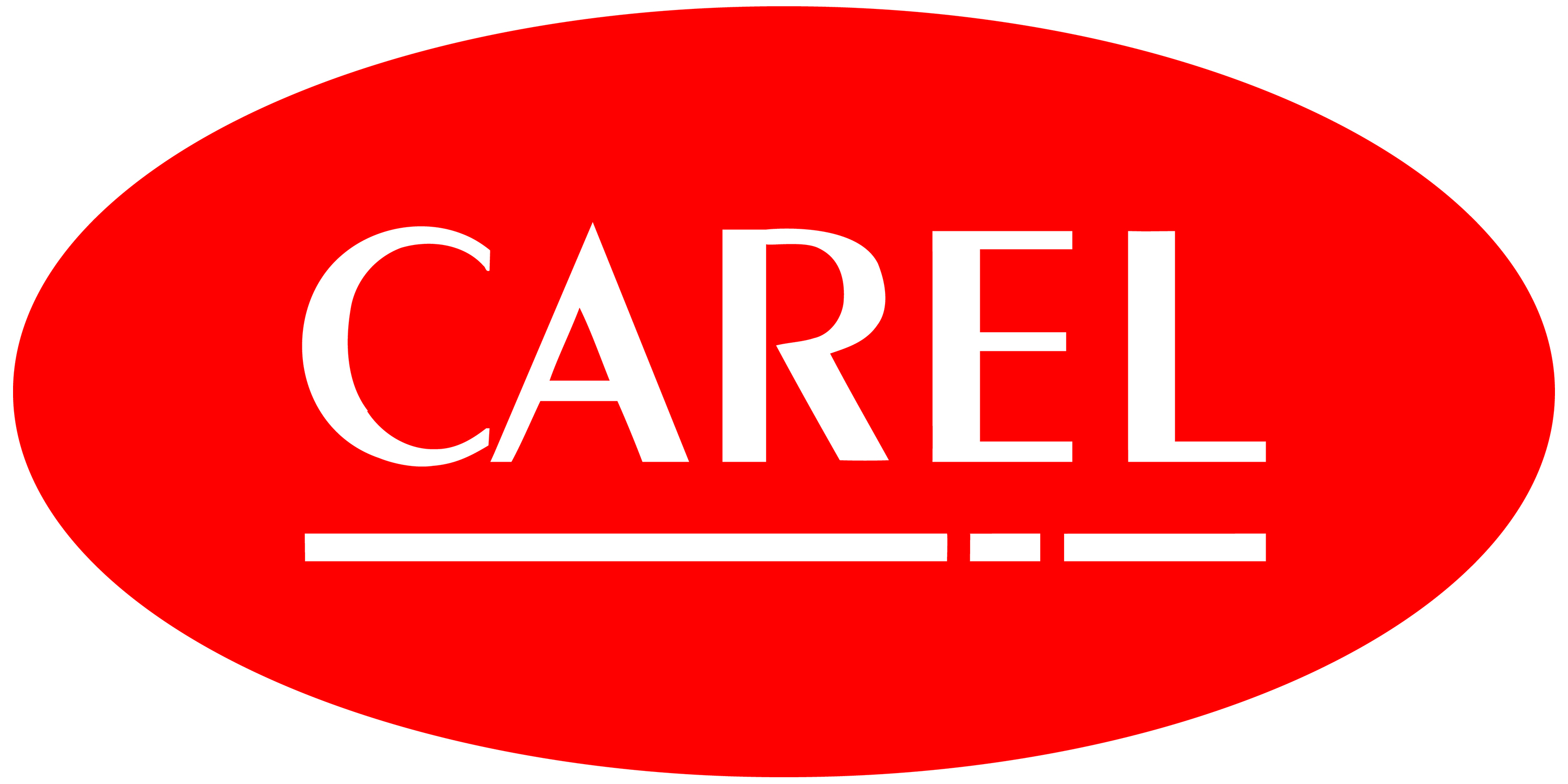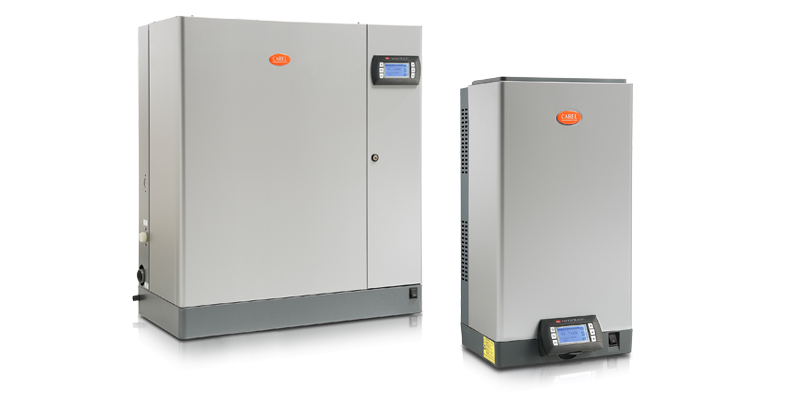Heater humidifiers NA

Características gerais
Immersed heater humidification is becoming increasingly requested in work specifications where:
• humidity must be controlled precisely (museums, laboratories, clean rooms);
• periodical maintenance needs to be minimised (using demineralised water).
• water quality is not constant or is problematic (for example, aboard ships);
Immersed heater humidifiers, unlike immersed electrode units, can operate on demineralised water, as they do not exploit the electrical conductivity of water. Periodical maintenance can therefore be greatly reduced, due to the minimum formation of scale. Weighing against this, the resistive elements must always be completely immersed in the water, to avoid overheating (unlike with electrode units, in which the water level is adjusted to modulate the flow-rate of steam).
The operation of an immersed heater humidifier then requires water level sensors (to ensure complete immersion), as well as components (solid state relays) that precisely modulate steam flow-rate through duty cycling.
These characteristics make heater units more complex than their counterparts with electrodes, yet independent of the water characteristics water, and with much more precise modulation. In addition, as heater humidifiers are intrinsically subject to overheating, the quality of design and the presence of safety systems are essential to ensure reliable service over time.
The CAREL immersed heater humidifier solution is heaterSteam.-
Mais
• extreme precision, up to ±1% RH;
• electric heaters embedded in a corrosion-proof light alloy casting with a large surface area, guaranteeing perfect diffusion of heat and exceptional reliability over time (CAREL patent);
• temperature sensors inserted into the heating elements prevent any overheating, and detect well in advance the need for cleaning any scale (patented method);
• heating elements coated with non-stick material (full optional models) are very easy to clean;
• automatic water drain after 3 days of inactivity
• models H and T, with solid state relays, allow continuous modulation of steam production starting from 10% of capacity, with very precise control; model C provides ON/OFF operation;
• the patented "Anti Foaming System" detects foam and prevents any droplets of water being carried with the steam;
• model H supports a limit probe to prevent any condensate forming in the duct;
• in models H and T the preheating function allows a rapid response to the request for steam production;













